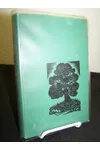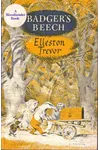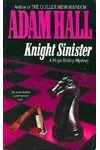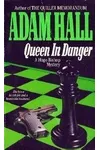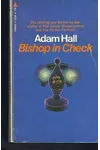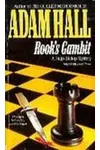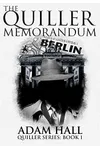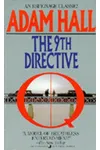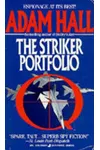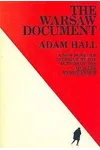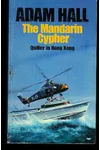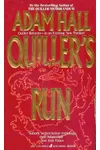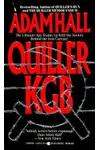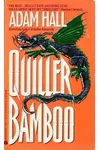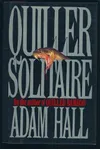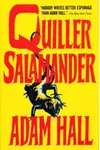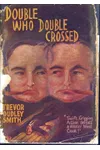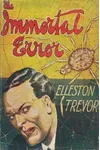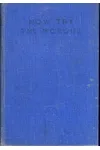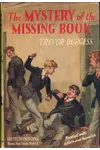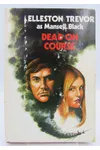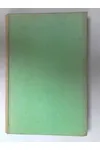Picture a British storyteller who turned Cold War shadows into pulse-pounding spy thrillers—meet Adam Hall! Born Trevor Dudley-Smith, this World War II veteran wove tales of espionage under his iconic pseudonym, captivating readers with the enigmatic agent Quiller. His knack for gritty realism and psychological depth earned him global acclaim, including the prestigious Edgar Allan Poe Award.
Hall’s stories aren’t just about spies; they’re about the human struggle, told with a flair that keeps you glued to the page. From Berlin’s divided streets to Bangkok’s golden spires, his novels redefined the spy genre. Ready to dive into his world? Let’s explore the man behind the mysteries!
The Making of Adam Hall
Born on February 17, 1920, in Bromley, Kent, Trevor Dudley-Smith grew up in a turbulent world. His early years were shaped by a challenging childhood, marked by his parents’ struggles. During World War II, he served as a flight engineer in the Royal Air Force, an experience that fueled his vivid storytelling. After the war, he traded the skies for the page, adopting pseudonyms like Elleston Trevor and Adam Hall to launch his writing career.
Settling in Spain, France, and later Phoenix, Arizona, Hall’s global perspective infused his work with authenticity. His proficiency in karate and love for flying kites added layers to his complex characters, especially the disciplined yet introspective Quiller. By the 1960s, Hall was crafting spy thrillers that stood out for their raw intensity and moral ambiguity.
Adam Hall’s Unforgettable Stories
Hall’s Quiller series, spanning 19 novels, is his crown jewel. The Berlin Memorandum (1965), later titled The Quiller Memorandum, introduced Quiller, a lone-wolf operative for a secretive British agency, “The Bureau.” Set in Cold War Berlin, Quiller hunts a neo-Nazi group, navigating danger without a gun, relying on his wits and Shotokan karate. The novel’s taut prose and psychological depth won the Edgar Award and the French Grand Prix de Littérature Policière.
The Ninth Directive (1966) takes Quiller to Bangkok, tasked with thwarting an assassination during a royal visit. Its fast-paced plot and exotic setting showcase Hall’s ability to blend suspense with cultural nuance. Quiller Salamander (1994) sees him in Cambodia, facing the Khmer Rouge’s legacy, proving Hall’s relevance even in the post-Cold War era. Hall’s style—first-person narration, stream-of-consciousness monologues, and meticulous tradecraft—sets him apart, offering readers a front-row seat to a spy’s mind.
Beyond Quiller, Hall wrote as Elleston Trevor, penning The Flight of the Phoenix (1964), a gripping survival tale adapted into a 1965 film starring James Stewart. His versatility shone in mysteries, children’s books, and plays, but his spy thrillers remain his legacy’s heartbeat.
Why Adam Hall Matters
Adam Hall redefined spy fiction by stripping away glamour and focusing on the gritty, human side of espionage. Quiller, unlike James Bond, is no suave hero; he’s a flawed, solitary figure wrestling with fear and duty. This realism, paired with Hall’s poetic yet action-packed prose, influenced writers like Shane Black and Eric Van Lustbader, who praised his narrative intensity.
His work lives on through film adaptations, like The Quiller Memorandum (1966), and a 1975 BBC series. Hall’s ability to capture the Cold War’s paranoia while exploring timeless themes of loyalty and sacrifice keeps his novels relevant. He passed away in 1995, but his stories continue to thrill readers seeking smart, suspenseful tales.
- Birth Date: February 17, 1920
- Key Works: The Quiller Memorandum, The Ninth Directive, The Flight of the Phoenix
- Awards: Edgar Allan Poe Award (1965), French Grand Prix de Littérature Policière (1965)
Snag The Quiller Memorandum and dive into Adam Hall’s thrilling world of espionage! You won’t put it down.

